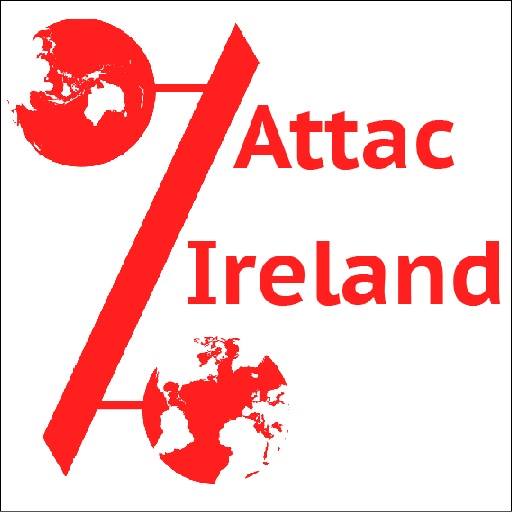Dublin’s leading role in the international network that assists multi-national companies in escaping the tax net was the subject of revelatory seminar organsied by campaigning group Attac Ireland, Harry Browne reports.
Corporate tax dodging isn’t a matter of ‘loopholes’ – it’s the result of careful, deliberate work by accountants, lawyers, governments and tax officials to create rules that let companies move their money around the world and legally get off the hook from taxation.
That was the lesson of a detailed and revealing Saturday-morning seminar in Liberty Hall, Dublin, in late June, followed by a walking tour that guided about 30 attendees through the streets of the Irish Financial Services Centre (IFSC), where tax avoidance is a multibillion-euro business.
The seminar and tour were organised by Attac Ireland: the Irish branch of an international organisation founded in France in 1998 to combat the power of the financial sector and of multinational corporations, which it sees as a threat to democracy. The event was a follow-up to the recent ‘LuxLeaks’ revelations that showed how just one consultancy firm, PriceWaterhouseCoopers, stitched up 548 tax-avoidance deals for 350 companies with the authorities in Luxembourg.
One consultancy firm, PriceWaterhouseCoopers, stitched up 548 tax-avoidance deals for 350 companies with the authorities in Luxembourg
The firms involved include Ireland’s own Glanbia, as well as household names such as Amazon, Pepsi, IKEA, FedEx and Deutsche Bank.
“The names of nine big Greek multinational groups appeared in the LuxLeaks report,” Attac Ireland member and UCD researcher, Marie Moran, chairing the seminar, said. “This underlines the hypocrisy of Europe demanding that Greece increase its tax take on the backs of workers and the poor while providing the means by which big Greek multinationals can avoid paying taxes in their own country.”
Speaker Claudine Gaidoni of Attac Ireland outlined the “piecemeal, uncoordinated” measures that European governments have appeared to take against tax avoidance since the LuxLeaks became public. “If each country or bloc of countries adopts its own measures, there will remain the temptation for some countries to continue offering multinationals special advantages in the name of competition,” she said.
The ‘competition’ to be the best at facilitating tax dodging is typified by the Irish Government’s burning desire to avoid collecting the nearly €2 billion in taxes that the European Commission thinks Apple could owe here after benefiting from a too-cosy arrangement with the State.
“The essence of the problem is that tax incentives are regarded as a key strategy of economic policy,” Trinity College Dublin lecturer, Dr James Stewart, said. “The Tax Justice Network has established that there are 81 jurisdictions that it classes as tax havens or low-tax jurisdictions.”
Dr Stewart said the IFSC’s own internal documents make clear that the Dublin centre sees itself as being in competition with Luxembourg to attract multinational companies with sweetheart deals, in “a race to the bottom”.
“Ireland’s role as a facilitator of tax avoidance is to the detriment of developing countries,” Sorley McCaughey, a tax-justice campaigner with Christian Aid, told the gathering. He spoke of a British sugar company that has deprived the Zambian government of millions of euro in taxes, with the help of a subsidiary based in the IFSC. “That Irish subsidiary had zero employees,” McCaughey said.
While there is some popular and political momentum building against tax avoidance and evasion, including a European Parliament committee investigating the practices, there are also immense obstacles to change. “At the start of July the presidency of the EU passes to Luxembourg, which means that progress on fighting tax avoidance is likely to be even more difficult,” Moran said.
The walking tour, led by activist and researcher Aubrey Robinson, concentrated on the consultancy and law firms, such as Matheson on Sir John Rogerson’s Quay, that do the paperwork to keep companies out of the tax net.
The tour ended on a slightly chaotic note outside Google headquarters on Barrow Street, where a burly Google security guard insisted that at least par of the public footpath where the tour group and an Australian TV crew were standing was “Google property”.





